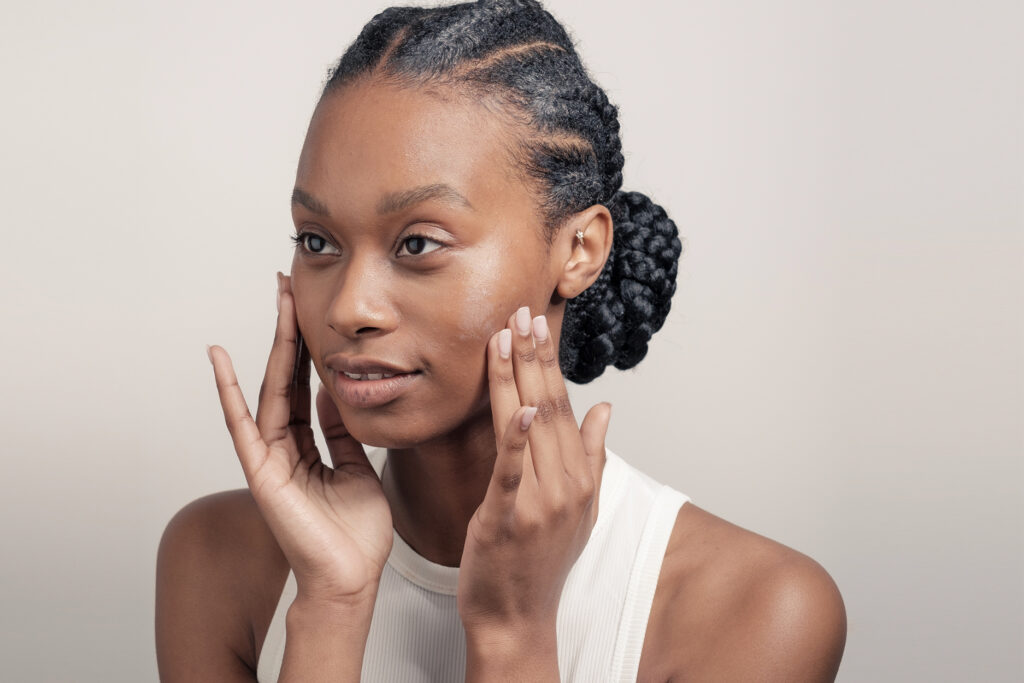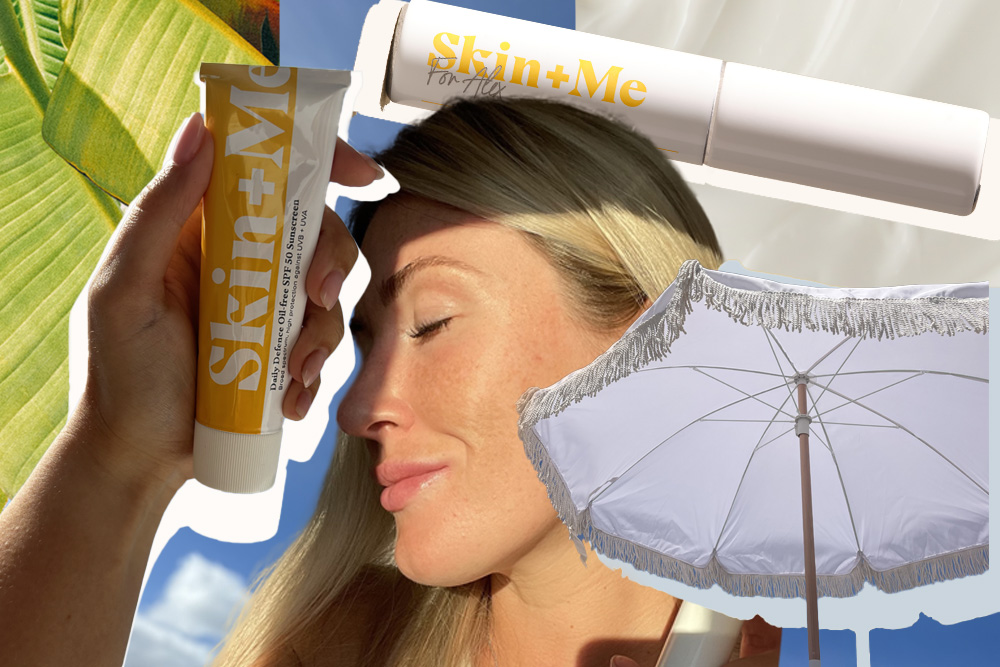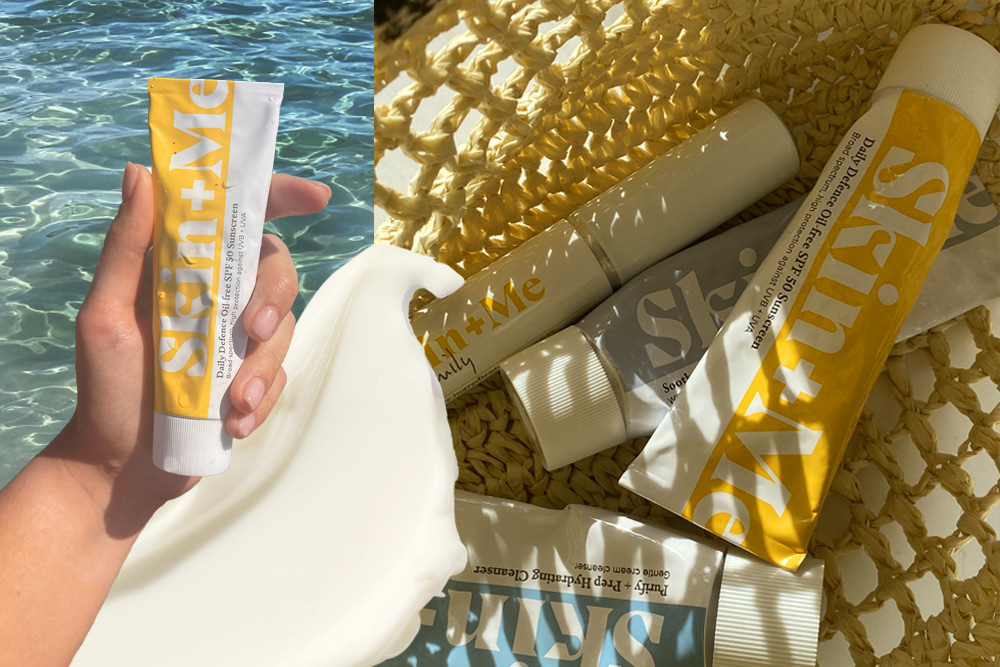Melasma 101

Link to share article here:
The Link Between Mental Health And Our Skin
Today is the third Monday in January. AKA ‘Blue Monday’. AKA the most depressing day of the year.
Coined by a travel company back in 2005, ‘Blue Monday’ symbolises the day in which many of us book holidays to stave off the cold and look forward to warmer climates. However, in recent years, Blue Monday stands as a symbol of post-party season, gloomy January days and long, dark evenings.
Instead of dwelling on the negatives, we on The Dose see it as an opportunity to learn a little bit more about mental health and its impact. The broad definition of mental health encapsulates our emotional, psychological and social wellbeing. It involves recognising when to ask for support, setting out boundaries and taking time to prioritise some selfcare.
But did you know about the deep connection between mental health and physical health – including your skin health? We sat down with Skin + Me’s Head of Medical, Dr Jason Thomson, to chat about the ways your skin and brain can influence each other, and what you can do to care for yourself both inside and out.
The brain-skin connection
Have you ever thought that your skin often looks a bit worse when you aren’t feeling your best? It’s not just your imagination – our body’s response to our mental state can manifest in our skin, causing flare-ups of skin conditions like acne, rosacea and eczema. This is known as the brain-skin connection, and research in this intersectional field is known as psychodermatology.
“Recognising that the body and the mind are linked is the first step in managing skin-related stress,” says Dr Jason Thomson, Head of Medical at Skin + Me. “Skin conditions can be worsened by stress, yet stress (and mental wellbeing) can be worsened by having a skin condition”. So, it’s easy to see how your brain and your skin can end up trapped in a vicious cycle – the two can aggravate each other due to their deep connection.
“We’ve known for a long time that stress can lead to a worsening of skin conditions such as psoriasis, acne, rosacea and eczema,” continues Dr Jason. “And more recently, studies have proven the link between flare-ups of these skin conditions and increased stress levels. Research has identified a complex stress response system, known as the ‘brain-skin connection’, which involves the immune system, the brain and the skin driving the underlying biology.”
Stress can cause the release of cortisol, a hormone that helps us deal with anxiety. It heightens inflammation, which in turn reduces the skin’s moisture levels, often resulting in itching and causing a flare-up of rosacea, eczema or psoriasis.
Excess cortisol can also send your sebaceous glands into overdrive and block your pores. If you suffer from acne, this is why you might notice more spots when you’re stressed.
And, high cortisol levels can also inhibit the production of hyaluronic acid, a substance that provides elasticity and softness to the skin. When hyaluronic acid production slows, our skin is more prone to the early signs of ageing like fine lines, wrinkles and uneven skin texture.
With all this to contend with, it’s no wonder that many people become even more stressed when they start to see changes in their skin. “Struggling with a skin condition can have a really big impact on our stress levels and mental health too,” says Dr Jason. “Several studies clearly show that if you have a skin condition you’re more likely to also have mental health conditions like depression and anxiety. With conditions like acne, the visibility of spots and scarring can have a huge impact on self-confidence, and even the way we interact with others.”
The holistic approach
There’s no denying that the links between mental health and skin can be a struggle, but luckily there are some steps you can take to boost your mood and get your skin glowing again.
Firstly you can make progress by tackling the root causes of stress, seeking support when you need it and developing mindful positive habits. Making tiny changes and reclaiming time for yourself can really make a difference. Schedule in specific time to do what you love and commit to it – whether that’s spending time outside, learning a new skill, being active or connecting with friends or family. Eating well, getting enough sleep and doing some exercise a couple of times a week could help too.
Dr Jason explains: “Stress, mental health and our skin are intrinsically linked. This emphasises just how important it is to maintain a balanced, healthy lifestyle that looks after physical and mental wellbeing.”
It can also help to start a diary or journal your feelings. Remember, thoughts are not facts so talk to yourself like you’d talk to a friend and treat yourself with the compassion and respect you deserve. Chatting with your loved ones about how you feel can help to lighten the load, and always remember that professional help is available if you need it.
When it comes to your skin, adopting a simple, effective skincare routine can often help combat breakouts and flare-ups. A dermatologist-designed routine can target specific skin conditions and help you to achieve your goals – start your journey with Skin + Me here. Remember, we’re with you every step of the way.
If you are worried about your mental health or that of a loved one, please visit your GP or seek support from one of the following UK helplines
Mind: 0300 123 3393
Calm: 0800 58 58 58
Samaritans: 116 123
New to Skin + Me? Get your first month of personalised skincare for £4.99 with promo code DOSE – complete our quick consultation here.
Looking for a routine refresh? Add the Dream Routine to your Skin + Me subscription.
In need of a restock? Head to The Skincare Shop for one-off purchases of your Routine Essentials.



